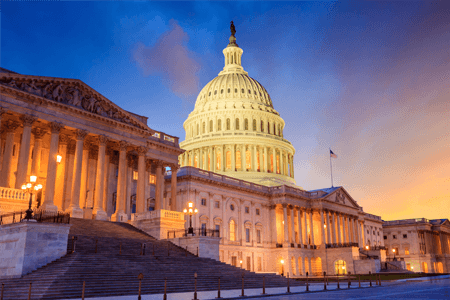In May, the American Chemistry Council (ACC) ramped up our trade advocacy by highlighting the essentiality of imports to U.S. chemicals manufacturing and by calling on Ambassador Tai and the U.S. Senate to take action on the Miscellaneous Tariff Bill (MTB), which would suspend duties on imported inputs that are vital to our industry’s global competitiveness.
Thankfully, our call was heard.
The U.S. Innovation and Competition Act of 2021 (USICA), passed by the Senate on June 8 and which includes Sen. Mike Crapo and Sen. Ron Wyden’s Trade Act of 2021, could usher in much-needed tariff relief for U.S. chemicals manufacturers that rely on select imported inputs to strengthen their manufacturing processes here at home.
MTB expiration has cost U.S. businesses millions in tariffs
In the two years prior to January 1, 2021, the Miscellaneous Tariff Bill had already suspended and reduced most-favored-nation (MFN) tariffs on more than 1,000 imported inputs that are considered essential to manufacturing chemicals in the United States.
Since the MTB’s expiration at the end of 2020, however, U.S. manufacturers have paid an average of $1.3 million per day in tariffs on products that are neither manufactured in the United States nor available in sufficient quantities.
The business of chemistry relies on trade; our access to low-cost imports from a wide range of sources enables our export competitiveness. In 2020, even during the pandemic, our trade surplus was over $25 billion. But that trade surplus could grow more with a smarter approach to trade policy.
Through the MTB, U.S. chemical manufacturers could use the duty savings that the MTB provides to make more in America, respond to increasing demand for innovative products of chemistry around the world, and grow high-skilled, high-paying U.S. jobs.
Cost savings from the MTB could also be shared with downstream customers in a wide array of industries, from agriculture, to autos, to building and construction.
A possible turning point for U.S. trade policy?
As a country, we are facing an uphill climb to economic revitalization, and the weight of the tariffs is limiting U.S. economic growth and job creation in the waning days of the pandemic.
Fortunately, the USICA, which President Biden has said will strengthen America’s innovation infrastructure, could mark a turning point for U.S. trade policy.
Now, it’s on to the House – and ACC will be joining with our coalition partners to support its progress all the way through to the finish line.


